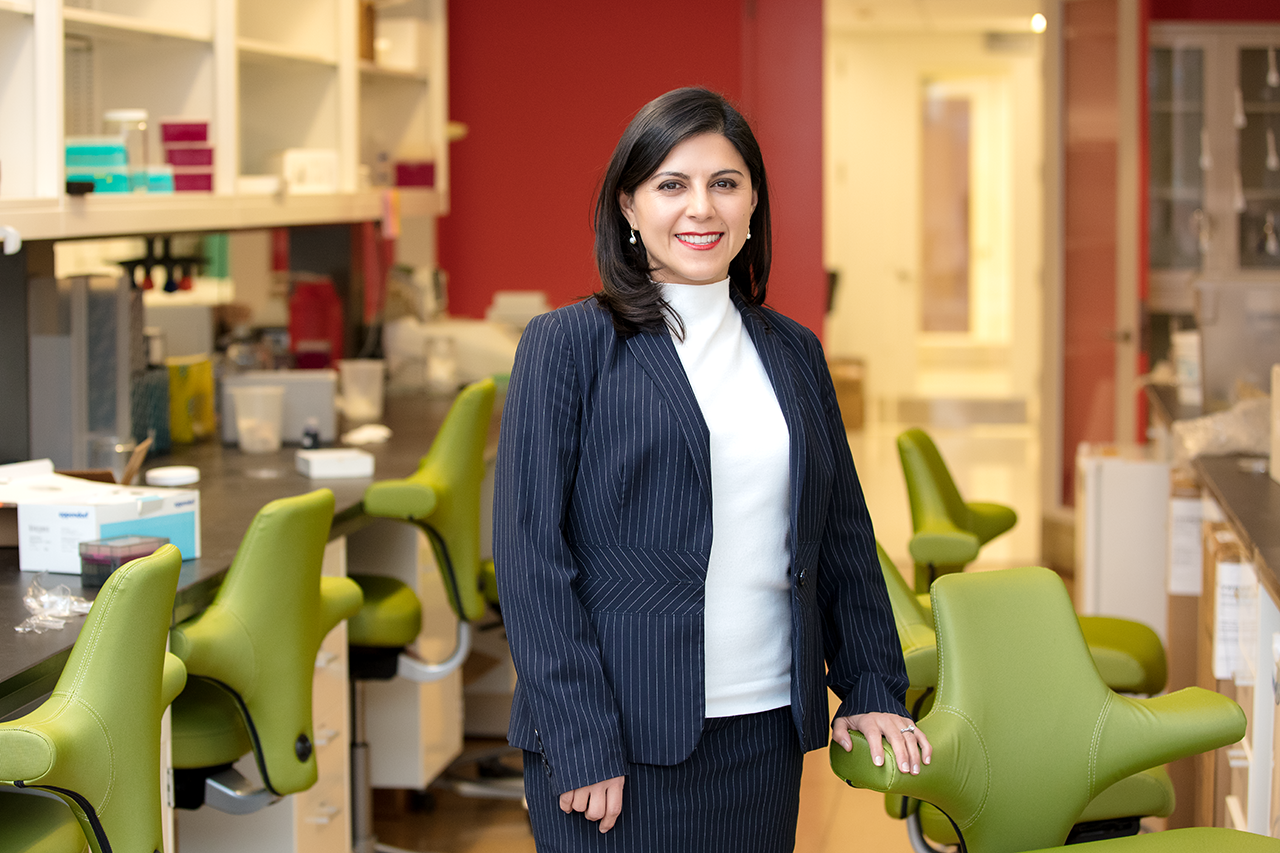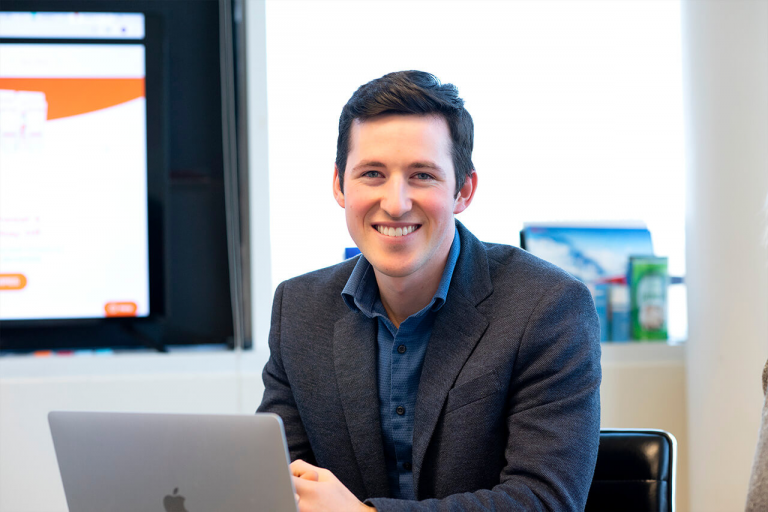The flurry of activity doesn’t just involve new companies, but working with existing companies on business strategy and funding opportunities, McKee notes. To that end, KVS has been offering a variety of services: from the coaching, advisement and connections it normally provides to pandemic-specific support like helping companies pivot existing life science technologies toward COVID-19, write grants for COVID-related federal grants, and plan for future physical space needs.
In terms of future physical space, McKee says that now is the time to think ahead. In December before the pandemic hit, she and her team opened the KickStart Accelerator on the second floor of the Genome Sciences Building. The 7,500-square-foot accelerator offers wet lab and office space for UNC-affiliated life science companies.
“We’ve been fortunate that many of our companies have received funding awards, and we are working to get them ready to move into our new KickStart Accelerator,” said McKee. “Things are halted at the moment, but we are working to prepare them so that once operations resume, they’ll be ready to go.”
As for funding, McKee said KVS has held ongoing conversations with investors, and while the investors’ strategies are changing, they are still active and looking for deals. “Right now, it’s all about pushing through this and surviving. But if you do that, you will be in a very strong position to get investment funding,” she said.
A great way to bridge the funding gap, McKee says, is to apply for SBIR/STTR grants offered by the National Institutes for Health (NIH). While the next application deadline for such grants wouldn’t ordinarily happen until September, NIH has issued a special call for COVID-related funding. McKee and the KVS team are working with companies to navigate University processes so they avoid conflict of interest issues and helping them to strengthen grant applications through expert grant writers. Those types of services pay big dividends.
“We see an increase to a 50 percent success rate for our companies that work with grant writers compared to a 10-to-15 percent rate when they submit grants by themselves,” McKee said.
KVS also offers commercialization awards of its own to Carolina IP-based companies and recently announced the latest round of KickStart award funding recipients.
“You need to come up with a strategy for how you will manage your way through this situation, whether it’s finding creative sources of funding or minimizing costs,” McKee said. “And if you can pivot into areas that are of interest right now, there are a lot of ways to get into critical areas that are hot at the moment.”


 | UNC-CH
| UNC-CH




